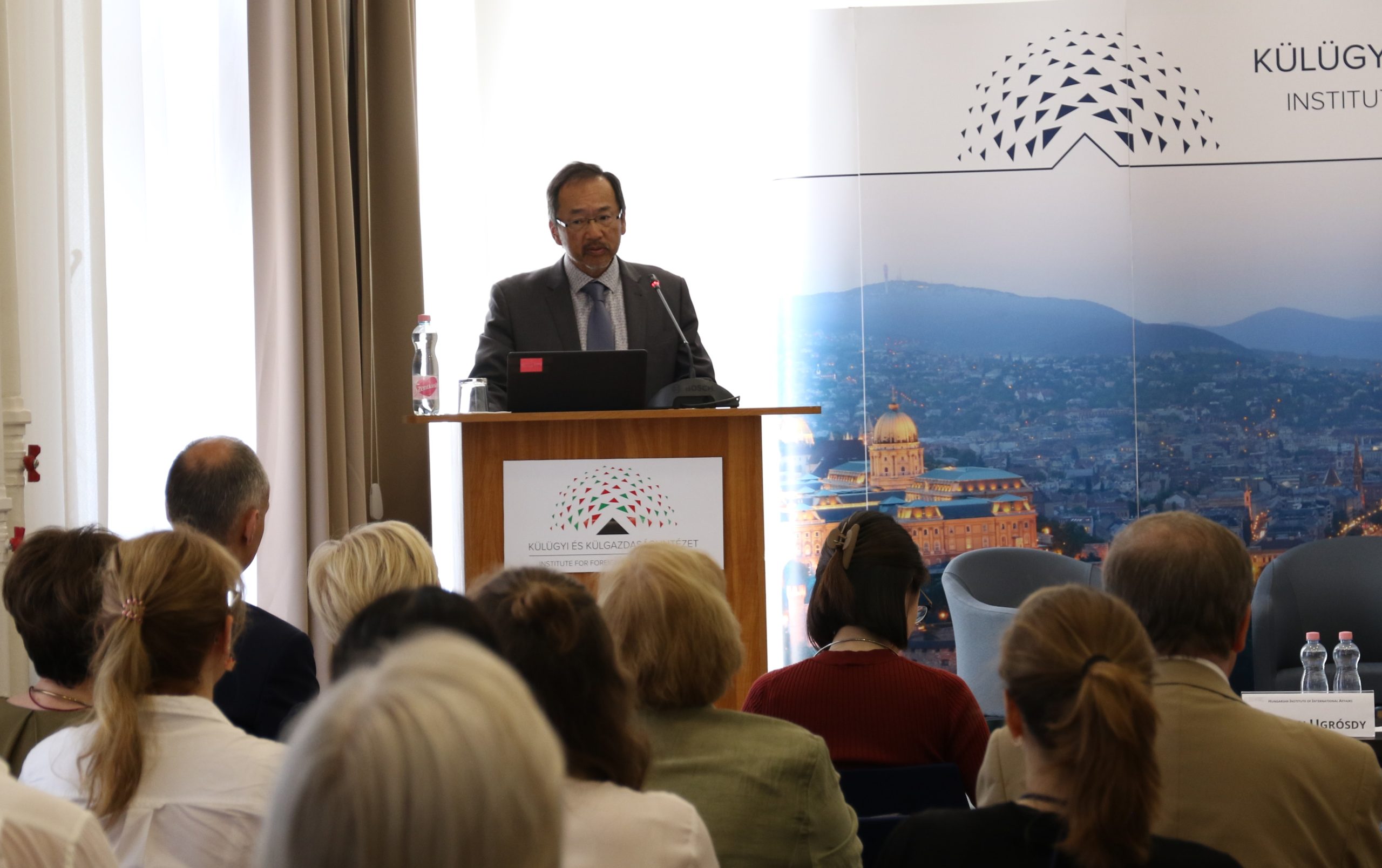On June 21, 2023, the Embassy of Japan in Budapest and the Hungarian Institute of International Affairs (HIIA) hosted a public event entitled “Japan’s G7 Presidency and the Outcome of the Hiroshima Summit”. The event’s participants were H.E. Otaka Masato, Ambassador of Japan in Hungary, Márton Ugrósdy, Deputy State Secretary to the Prime Minister’s Office, and András Bartók of the National University of Public Service. The event was moderated by Tibor Mezei, Research Fellow of the Hungarian Institute of International Affairs.
After the welcoming remarks of Márton Schőberl, Chief Executive Officer of HIIA, H.E. Otaka Masato held a keynote speech, introducing the recent G7 summit taken place in Hiroshima. In his assessment of the summit’s key takeaways, he highlighted nuclear disarmament and the war in Ukraine among the most important issues discussed in Hiroshima. He elaborated on how the G7 supports a realistic disarmament process and affirmed Japan’s strive to facilitate nuclear disarmament. Regarding the Ukrainian conflict, he reiterated the G7’s unwavering support towards Ukraine and emphasized the need to synergize reconstructing efforts in the future. He also spoke about the G7’s agreed goal of strengthening economic resilience by de-risking instead of decoupling as a means of avoiding excessive economic dependence – especially on China –, while still maintaining economic cooperation.
H.E. Otaka Masato’s keynote speech was followed by a Q&A session moderated by Tibor Mezei. Concerning the topic of de-risking, András Bartók remarked that this strategy does not entail outright bans but rather the protection of certain key sectors. On the other hand, Márton Ugrósdy highlighted that smaller, landlocked countries such as Hungary have fewer opportunities to de-risk and diversify e.g. their energy mix due to their dependence on neighbouring countries, and encouraged the increased involvement of G7 states to aid these countries’ diversifying efforts.
Regarding Japan’s G7 presidency and increased activity on the global scene, H. E. Otaka Masato revealed that the UN system and principles being in jeopardy prompted Japan to take on a more active and vocal international role. András Bartók commented on how this increased activity is strongly approved by the Japanese public, while Márton Ugrósdy praised the Japanese approach as an example of peaceful conflict management.
During the Q&A session, the participants also answered various questions from the audience, concerning issues such as Japan’s increased military spending and the possibility of amending the constitution, as well as Japan’s relations with Middle Eastern and African countries and South Korea.
Photos by Hungarian Institute of International Affairs (HIIA)

